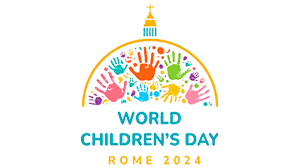AMECEA: Church, Malawi Government, Embrace Holistic Child Care And Advocate for Collaboration

Sr. Jecinter Antoinette Okoth, FSSA
Various actors in Malawi including the Catholic Church and the government, have appreciated the move by the Catholic Care for Children (CCC) toward family and alternative care as the best approaches for holistic upbringing of children.
In a bid to create awareness of the significance of re-integration of children back into families from institutions, a team from the Association of Member Episcopal Conferences in Eastern Africa (AMECEA), Association of Sisterhoods in Kenya, (AOSK), Association of Women in Religious Institutes of Malawi (AWRIM), met with the leadership from the Catholic Secretariat of the Episcopal Conference of Malawi (ECM) and government representative who collectively appreciated the process believed will help children grow up holistically.
Expounding on the intent of the meeting, Mr. Bernard Mberere Mbugua the Information and Communications Technology (ICT) officer at AMECEA narrated that the pilot process of reintegration is to help the region learn and identify existing gaps before a child who was in a care institution is reunited with family or relatives.
“Based on the survey that was conducted by Sisters, in a report referred to as a regional portrait that was launched last year May, the Church is running most of the facilities for childcare through the four different Associations of Sisterhoods in the region particularly in Kenya, Uganda, Malawi, and Zambia,” Mr. Mberere said, adding that the findings revealed that bringing up children in institutions is not the best way to go hence the need to understand the best way possible for reintegration.”
According to the AWRIM Secretary General Sr. Agnes Magalasi Phiri who was also in the meeting Monday, February 25, raising children in a family setup is commendable since the children receive “high-quality care service which keeps them safe and healthy and also helps them develop the skills needed for success in schools and in the future.”
On her part, the Project Manager for CCC-Kenya (CCC-K) Sr. Delvin Mukhwana explained that the Holy Father is calling upon all the Christian faithful and the people of God to intensify care for the children and vulnerable adults.
She narrated some of the pillars guiding the care reform process saying, “As a movement, we have pillars that guide us. These include the Biblical mandate where Jesus said: ‘Let little children come to me,’ the Social teachings of the Church where we take the three principles: the sacredness of life, the dignity of human life, family, and option for the poor.”
Another pillar she added, “Is the social sciences which directs us to see how children develop in their growth. This gives us a reason to understand why children need to grow up in a family setup.”
Therefore, the Kenyan nun said, “We are working on this movement to respond to the needs of time. And with collaboration, it is possible that children can be reunited with their families.”
The government representative Mrs Trofina Limbani, the Principal officer for family and social welfare services in Malawi appreciated the step taken by CCC to lobby for care reform and echoed that the government of Malawi has been pushing for the same.
“In 2016, the Malawi government said ‘no’ to institutionalizing the children but there is a need to prioritize the family as the base since our policies and the constitution highlight the family as the best option while institutional care should be the last resort,” Ms. Limbani said adding that a feasibility study was conducted which proved that family and alternative care is possible.”
The government representative revealed that childcare institutions in the country haven’t been licensed since the government has guidelines that are not legally binding.
“As a government, we are also pushing for regulations of foster homes. Currently, Malawi has only the Child Care and Protection Justice Act which stipulates how childcare institutions should run but the regulations to guide the quality of care are not legal yet,” Ms. Limbani said and explained further, “We are pushing forward for this so that once we have regulations gazetted, all the CCI’s (Catholic Care Institutions) will be registered.”
She emphasized further that even though the process of reuniting children with the family is the best, care should be taken “not do more harm than good to the children but they are prepared very well together with the families since reintegration is a process and differs per case.”


